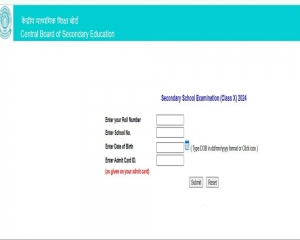In an era marred by misinformation, censorship and threats to journalists, the celebration of press freedom assumes greater significance than ever before
Were it left to me to decide whether we should have a Government without newspapers, or newspapers without a Government, I should not hesitate a moment to prefer the latter - Thomas Jefferson
Every year on May 3rd, the world comes together to celebrate World Press Freedom Day, a day dedicated to honouring the fundamental principles of press freedom, defending the independence of the media and paying tribute to journalists who risk their lives to report the truth. In an era marked by misinformation, censorship and threats to journalists worldwide, this day holds more significance than ever. Press freedom is the cornerstone of democracy. It empowers citizens by providing them with access to diverse viewpoints and information, enabling them to make informed decisions. A free press serves as a watchdog, holding Governments and powerful entities accountable for their actions. It acts as a voice for the voiceless, bringing attention to social injustices and human rights violations.
Despite the crucial role they play, journalists around the world face numerous challenges in their pursuit of truth. They encounter threats, harassment and violence, both online and offline. Many journalists risk imprisonment or even death for daring to report on sensitive issues. Censorship, propaganda and attacks on press freedom have become increasingly prevalent, hindering the ability of journalists to fulfil their vital role in society. World Press Freedom Day. Since 1993, it has been observed globally to honour a declaration made by African journalists in Windhoek, Namibia, in 1991. It commemorates press freedom principles and acknowledges journalists’ courage. UNESCO awards the Guillermo Cano Prize to those preserving press freedom.
While technology has revolutionised the way information is disseminated, it has also presented new challenges for press freedom. Social media platforms have become powerful tools for spreading information, but they have also been weaponised to spread misinformation and silence dissenting voices. Journalists must navigate through a digital landscape fraught with fake news and online harassment, often at great personal risk. India, home to one of the world’s largest and most vibrant media landscapes, has faced scrutiny in recent years regarding its press freedom record. According to the World Press Freedom Index compiled by Reporters Without Borders (RSF), India’s ranking has seen fluctuations. In the 2023 index, India was placed at 163 out of 180 countries, indicating significant challenges to press freedom within the country.
“When asked to bend, the media crawled. And when asked to crawl, it cringed.”This statement was made by Advani in the context of the Indian media’s behaviour during the Emergency period (1975-1977), imposed by Prime Minister Indira Gandhi. During this time, press freedom faced severe restrictions, with journalists being arrested, newspapers censored and the Government exerting tight control over media outlets. Advani’s quote reflects his criticism of how certain sections of the media capitulated to Government pressure and failed to uphold journalistic integrity and independence. It suggests that instead of resisting unjust demands or censorship, some media outlets complied with the Government’s wishes, even to the point of degradation. This quote serves as a reminder of the importance of a free and independent press in holding those in power accountable and safeguarding democracy. It highlights the need for journalists to remain vigilant in upholding the principles of press freedom, especially in times of political turmoil or authoritarian rule. British politician Edmund Burke is often credited with coining the term in the late 18th century, referring to the gallery of the House of Commons as the fourth estate, symbolising the press’s influence on political affairs. The term “fifth estate” underscores the transformative role of social media in democratising access to information, enabling individuals to participate in public discourse and challenging established institutions and power structures. Social media platforms empower users to share news, opinions and perspectives instantaneously, bypassing traditional gatekeepers of information.
On World Press Freedom Day, we must reaffirm our commitment to defending press freedom and protecting journalists worldwide. Governments must uphold the principles of free speech and ensure the safety of journalists within their borders. Civil society plays a crucial role in advocating for press freedom and holding those who seek to suppress it accountable. Media organisations must continue to strive for independence, transparency and ethical journalism, even in the face of adversity. World Press Freedom Day is also a day to celebrate the courage and resilience of journalists who risk their lives to report the truth. It is a day to honour those who have faced persecution, imprisonment and even death for their commitment to upholding the principles of press freedom. Their dedication serves as a reminder of the invaluable role journalists play in safeguarding democracy and promoting transparency.
(The writer is an associate professor, views are personal)


























